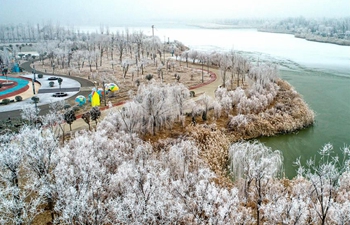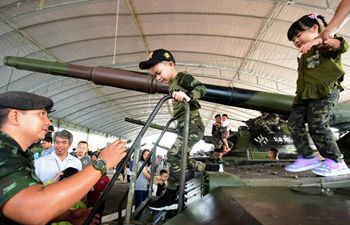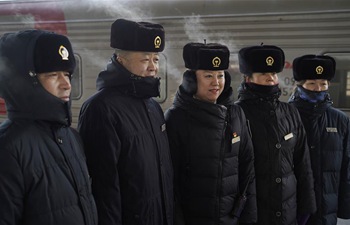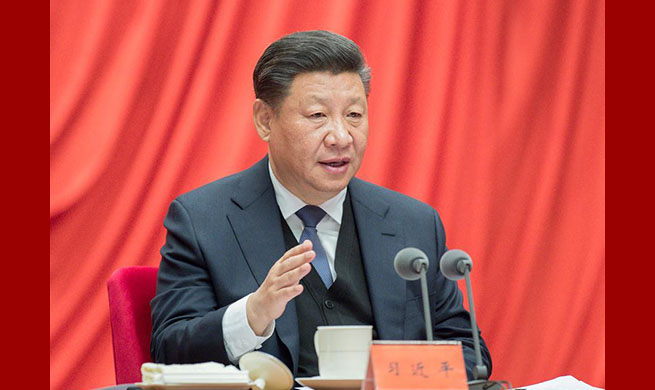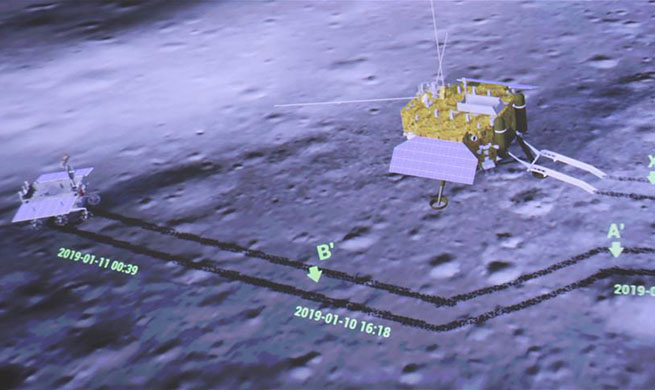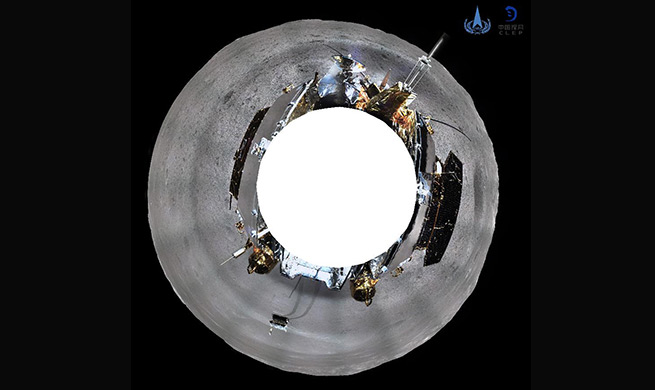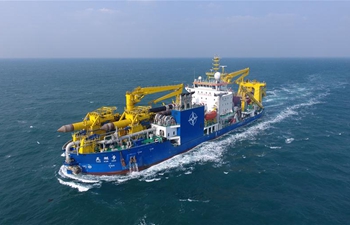ISTANBUL, Jan. 12 (Xinhua) -- Despite continued tension in bilateral ties, Turkey and the United States are expected to manage to get on without spoiling relations, as Anakra continues its military buildup against the Washington-backed Kurdish militia in Syria.
"No matter how serious the disagreements are, Ankara would seek in the end to strike a bargain with the U.S.," Hasan Koni, an analyst on international relations with Istanbul Kultur University, told Xinhua.
Ties between the two NATO allies have been strained mainly because of the U.S. support to the Kurdish militia in Syria, which is seen by Ankara as a terror group. Ankara's refusal to scrap a deal on Russia-made S-400 air defense system and to comply with U.S. sanctions on Iran are other major thorns in bilateral ties.
The concept of identity, of which religion is a major component, is a central theme in Koni's line of reasoning, as he argued that people who grew up with an Islamic lifestyle would be naturally inclined toward the West because of its more sympathetic attitude toward the Islamist ideology.
Ankara would therefore prefer to avoid disrupting ties with Washington, said Koni.
Turkey has been threatening a cross-border operation against the Kurdish militia in northeastern Syria despite the U.S. commitment to protect its Kurdish ally.
No crisis should be expected between Ankara and Washington, Ilhan Uzgel, an analyst on international relations who taught at Ankara University, told Xinhua.
The two countries would manage to reach a compromise as in the past, he said, maintaining that the image of a crisis in ties is actually misleading.
Both Koni and Uzgel believe the United States may say "yes" to a limited Turkish incursion into Kurdish-held territory, where Ankara would set up a buffer zone for its own security.
Such an operation, though limited, would play into the hands of Turkish President Recep Tayyip Erdogan prior to the local elections in late March without essentially changing the status quo in the Kurdish-held territory, both analysts said.
Meanwhile, Turkish Foreign Minister Mevlut Cavusoglu has underlined Ankara's determination to eliminate the Kurdish militia, saying his country may start the operation in case the United States should take its time in withdrawing troops from Syria.
The United States has several thousand troops and over a dozen military bases in Kurdish-held areas in war-torn Syria.
Ankara originally threatened to launch the military offensive last month, but decided to put it off after U.S. President Donald Trump unexpectedly announced a withdrawal of U.S. troops from Syria.
Statements by top U.S. officials in the past week indicated, however, that Washington would withdraw troops only after making sure Ankara would not attack the Kurdish fighters.
In a sign of protest, Erdogan refused to meet with Trump's national security advisor John Bolton, who discussed Syria with other Turkish officials earlier this week in Ankara.
"In the wake of the unsuccessful Bolton's visit to Ankara, Turkish-American relations are probably headed toward another impasse," said Faruk Logoglu, a former Turkish senior diplomat.
"Whether the two allies will be able to avoid a new crisis will depend largely on the next matching moves by Erdogan and Trump in Syria," he told Xinhua.
In an apparent response to Erdogan's criticism of Washington's attitude, U.S. Secretary of State Mike Pompeo stated that the U.S. stance would not change.
"It's important that we do everything we can to make sure that those folks that fought with us are protected and Erdogan has made commitments," Pompeo said.
Washington has used the Kurdish militia, known as the People's Protection Units, as a ground force against the Islamic State militants in Syria.
"If the operation is undertaken before the U.S. withdrawal, a confrontation between Turkish and American troops could deal a severe blow to bilateral ties," cautioned Logoglu.
Turkey would not risk raising tension with the Uited States at a time when its ailing economy is in great need of foreign capital, Uzgel said.
U.S. sanctions on Iran may also emerge as a major area of confrontation between the NATO allies in the coming months, as Ankara has repeatedly said it would not comply with the U.S. anti-Iran moves.
"A lack of agreement on Syria could also affect the position of the two countries regarding Iran," added Logoglu.
Turkey is among those which Washington has granted temporary exemption until May from major sanctions on Iran put in place since last November.
"The sanctions are the most sensitive issue that risks causing problems in bilateral ties," Uzgel said, noting Iran is more important than any other issue for Washington.
In his view, Washington would certainly push Ankara to observe the sanctions and may use the Halkbank case to get what it wants.
Turkey's state-owned Halkbank was found guilty of having violated earlier U.S. sanctions on Iran by a U.S. court last year. The court is yet to announce the amount of fine to be imposed on the bank.
Unlike Uzgel, Koni does not expect Washington to exert pressure on Ankara on the grounds that the United States would not want to risk losing an ally because of Turkey's huge strategic importance in the region.
"The U.S. may extend Ankara's exemption from sanctions and could allow it to continue to buy natural gas from its neighbor," he remarked.
Washington is concerned about Ankara's rapprochement with Moscow in recent years and the S-400 deal Turkey concluded with Russia at the end of 2017 remains a nuisance for Washington.
"The question of S-400 missiles will continue to vex Turkish-American ties," Logoglu stated, saying Ankara's suggestion that it could also buy the Patriot defense system from the United States is not welcomed by Washington because of national security concerns.
The United States would raise no objection in case Ankara would let the S-400 missiles remain inactive after getting them, said Koni.
"Turkey may also be using the S-400 deal to strengthen its hand in negotiations with Washington," Uzgel argued, saying it does not make much sense for a NATO country to buy the S-400 system which is not interoperable with the bloc's joint air defense network.




